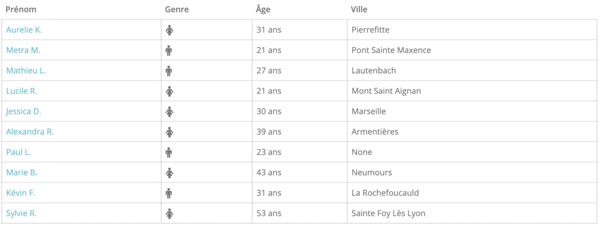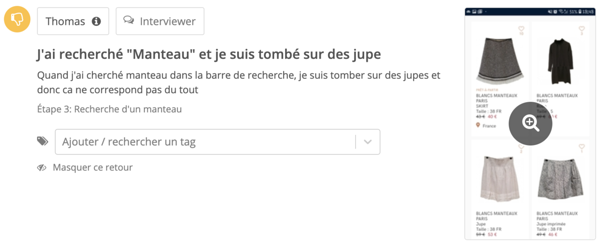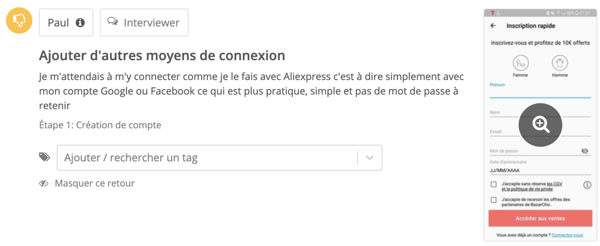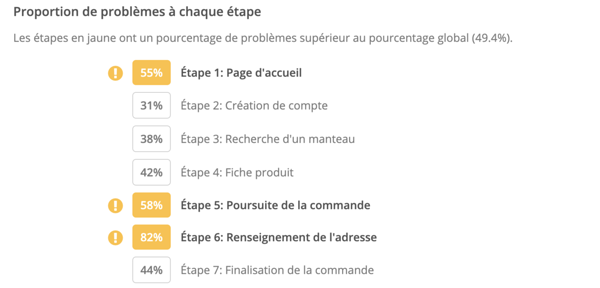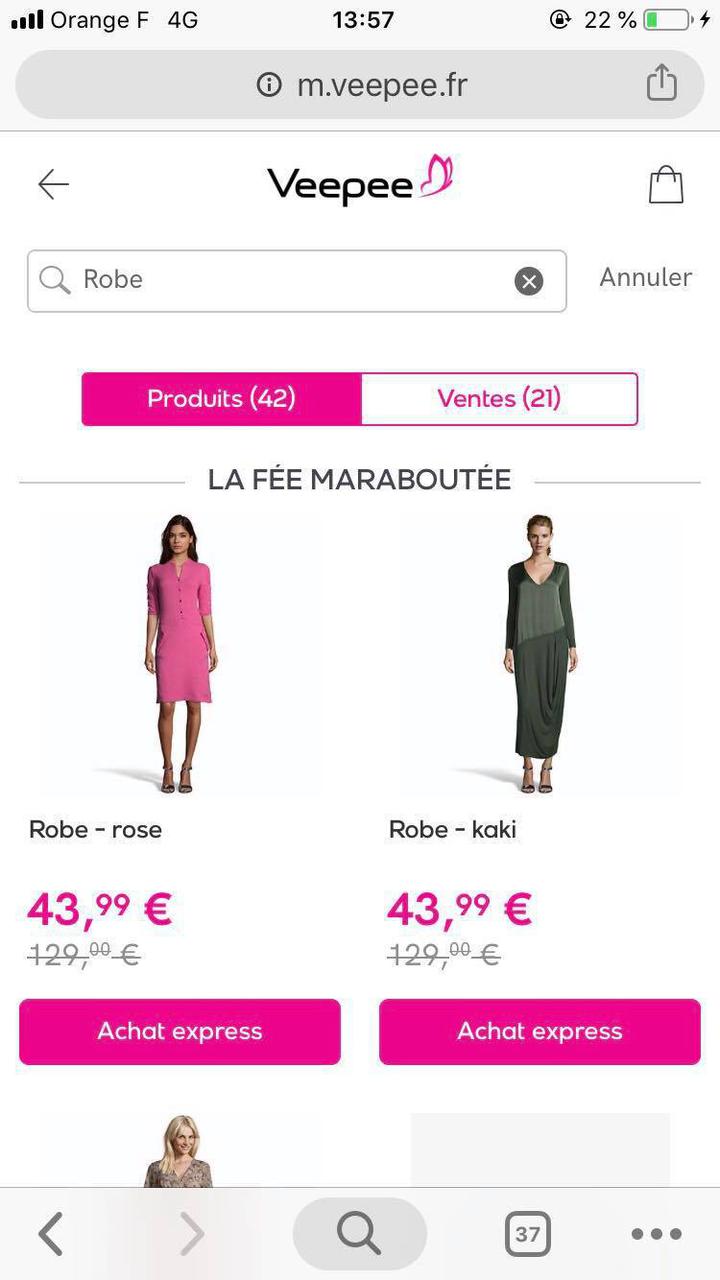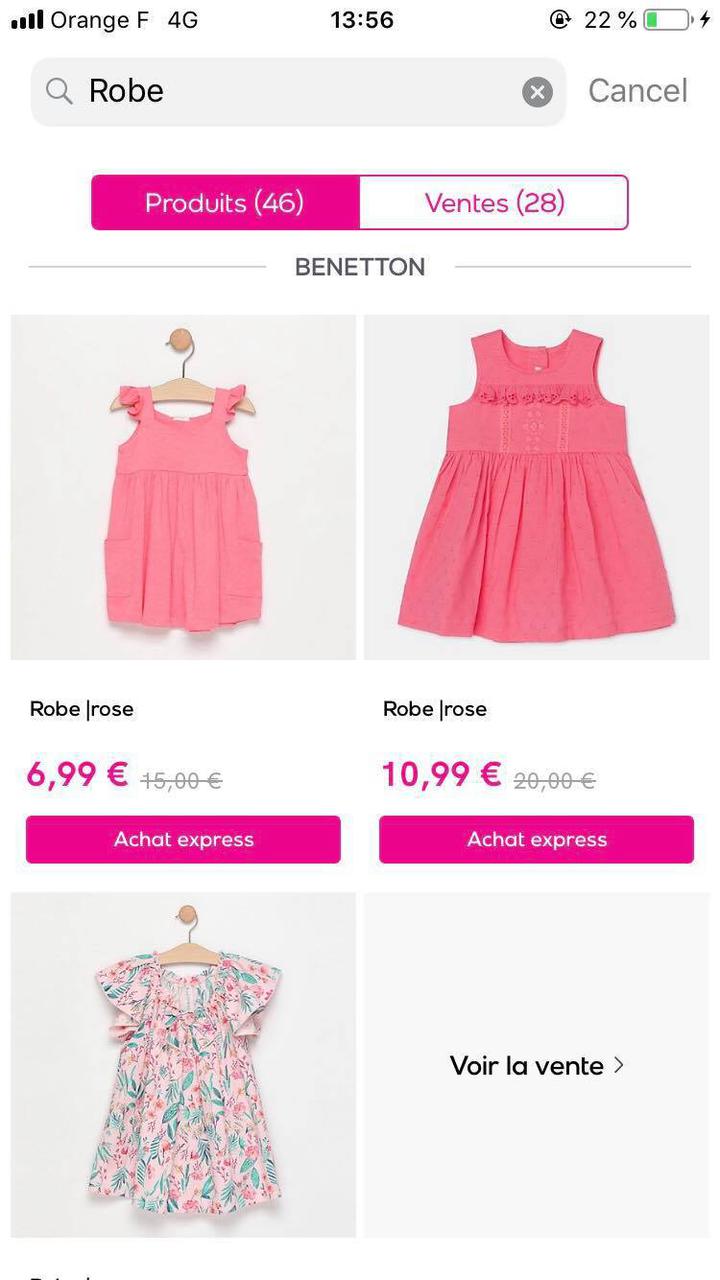September 2, 2019
Mobile App vs. Mobile Website: how does the user experience differ?
When it comes to mobile navigation, the app has a better image than mobile websites, which are often considered unsuitable for smartphones. Yet, in a time when most web traffic takes place from a smartphone, the latest "Mobile Web" technologies are constantly improving the performance of mobile versions of websites. We therefore decided to conduct a user study in the form of remote usability tests to learn more about the experiences offered by mobile websites and apps.
Study Content
We have selected 3 e-commerce experiences, each one being available as a mobile website as well as an app:-
Veepee, formerly "Vente Privée", specializing in "event sales"
-
Bazarchic, also in the event sales sector
-
Vestiaire Collective, a second hand site for luxury-oriented clothes
Then, we formed a representative user sample consisting of 60 people, men and women, aged 18 to 61 years old and living in France.
View of part of the sample
We asked them to navigate like a new visitor, on either one of the apps or one of the mobile websites, and to describe their experience at each stage of the process, such as searching for a product, creating an account or paying for a product.
Example of user feedback for the Vestiaire Collective website
Example of user feedback for the Bazar Chic app
These results were then analyzed and compared to find disparities and similarities in the user experience.
Example of user feedback for the Bazar Chic app
Example of user feedback for the Bazar Chic app
Study results: similar satisfaction and features in the case of an order process
Contrary to our expectations, the scores obtained by the mobile websites are slightly below those obtained by the apps although not significantly lower.
"3.8/5: average score obtained by mobile websites, compared to 4/5 for apps.
Therefore, the average score for mobile websites is 3.8/5 versus 4/5 for apps, a negligible difference in terms of user experience. The percentage of problems reported by testers is also slightly higher on mobile websites (47.8%) than on apps (44,6%). From these figures, we can see that with a similar process, there is a minor difference in user experience between the two.
If we go deeper into the details of the suggested path's different steps, we can even see that some actions were more easily carried out via a mobile website, such as creating an account:
Step Score (1 indicating a very difficult step, 5 indicating a very easy step):
-
Account creation: mobile website 4,5/5, app 4,3/5
-
Item search: mobile website 4/5, app 3,8/5
-
Finalizing the order (payment and delivery): mobile website 3.5/5, app 4,2/5
Item search: a nearly identical interface for the mobile website (left) and the Veepee app (right)
Therefore, in the case of a simple traditional shopping experience, we can conclude that mobile websites allows one to do as much as apps, without the need of any installation! So, in this context of reducing the added value of apps compared to the use of a browser, which apps still have a spot on our smartphones?
App and mobile website: a different objective
In conclusion of comparing user experience between mobile websites and applications
On the other hand, while it is possible to perform certain actions (such as buying an item) both on a mobile website and on an app, the latter allows for more in-depth interaction with the user thanks to the possibility of sending notifications or using the device's features.
These differences tend to become minimal, especially with the arrival of new technologies such as PWA (Progressive Web App) which combine the advantages of apps while maintaining accessibility via the browser.
Do you wish to learn more about the available user research methods to better understand your users and test your products and services? Check out our remote user tests solution page or our UX design audit services.
All articles from the category: User research | RSS
